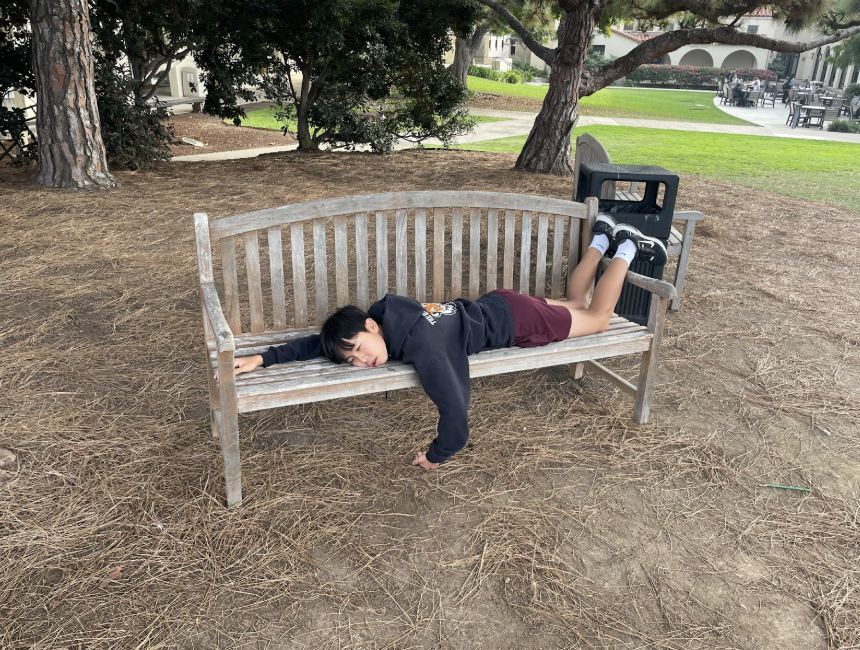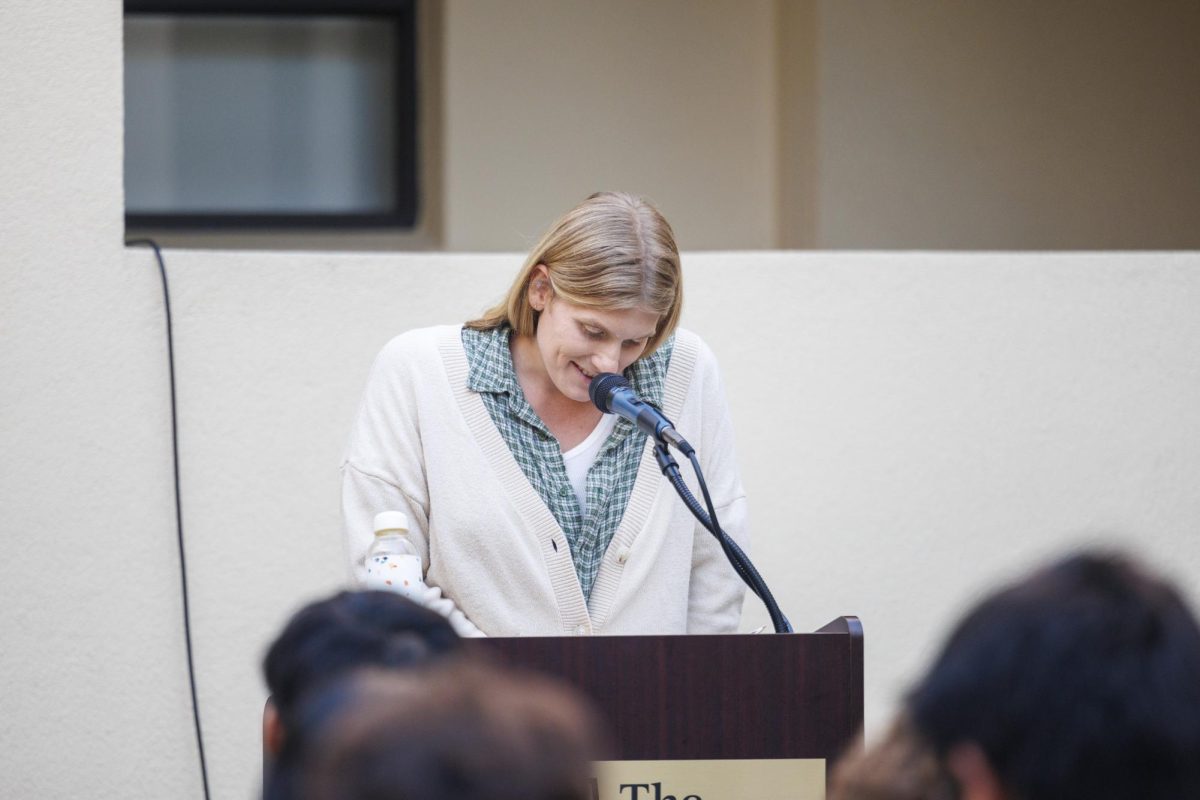“What did you do this summer?” It’s the most common icebreaker question asked during the first week back at school. Maybe something comes to mind right away: a trip to Europe, a cool internship, a sports victory. Or maybe you find yourself racking your brain for something “icebreaker-worthy” — something that feels impressive enough to say out loud.
Over the last decade, the meaning of that question has begun to shift. For some, the answer remains lighthearted, and summer is still full of travel and relaxation. For others, summer has become a time to build: to attend college programs, prepare for standardized tests, and train for fall sports. A 2019 Pew Research Center study studied students’ behavior in July and found that, on average, teenagers spent 39 minutes “engaged in homework or classwork” every day of that month, which was 17 more minutes than a decade earlier. That meant teens were spending around two hours more per week working.
At Bishop’s, this national trend is reflected in the way some students increasingly fill their summers with tasks, transforming what used to be downtime into yet another chapter of academic and extracurricular advancement.
When she was younger, Joy Xu (‘26) remembers her summers were spent in China, visiting family for the entire two and a half months. This summer — her last in high school — Joy toured colleges and worked in a nursing home as a Certified Nurse Assistant. “Although I love to relax, there’s always an underlying sense of guilt,” Joy said. She wasn’t the only one who felt this way.
Kailin Xuan (‘26) was in Boston for over a month studying computational neurobiology; she also promoted cultural awareness through writing articles for the Asian American community in San Diego. With so many activities on her plate, Kailin said, “When I think about taking a break, I feel a sense of relief since it’s a chance to recharge. … At the same time, I am aware of things like college applications that are nearing, which sometimes makes it hard to fully unwind.” Kailin’s experience reflects a common tension — the idea that even moments of rest are accompanied by the mental weight of what’s coming next.
This tension is only heightened by the competitive environment at Bishop’s that can amplify the drive to stay productive, even when school isn’t in session. Kiran Pelley (‘28) said, “One of the biggest pressures I faced over the summer was the amount of scheduled things my friends had, like jobs, classes, and other activities, which made me feel like I needed to be more productive.”
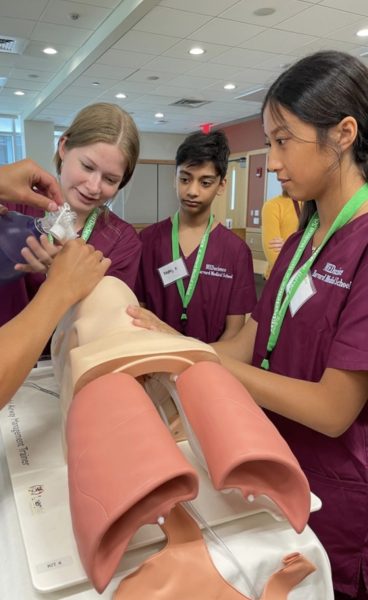
Joy added, “We always hear about how someone is doing an extremely competitive internship, or someone got into a program that you got rejected from. Every year [on] college sweatshirt day, you see all the amazing colleges that people get into, and you wonder if you could do the same.”
Associate Director of College Counseling Ms. Marsha Setzer explained that the competitive culture at Bishop’s plays a huge role in pushing students to work harder not only in the summer but also during the school year. “I bet a lot of students feel guilty if they take a weekend off from doing homework during the school year… Or when we have our homework-free breaks, they’re not actually taking a break from homework, right?” Ms. Setzer noted. This mindset during school then transfers over to summer vacation. As Director of Teaching and Learning Dr. Stephanie Ramos put it, there isn’t a simple “off” button to press when summer arrives.
When school resumes in August, the effects of a busy summer start to sink in. Ms. Setzer said, “I worry when students pack their summers so full that they come back in August exhausted.” Dr. Ramos echoed this concern, explaining that students who don’t take time to rest are “more likely to run out of steam quickly” and struggle to manage the demands of the new school year. She compared it to recovering from an injury; not allowing the injury to heal would result in a larger wound. Likewise, students who did not give themselves time to rest over the summer were more likely to find it difficult to manage their courseload in the fall.
Kailin agreed with this sentiment, noting that while staying productive during summer can ease the school-year workload, pushing too hard can be just as draining. “That’s why I’m trying to be mindful this summer about how I spend my time,” she said, “so I can stay energized for what’s ahead.” Aaron Cheng (‘28) also felt a push to pursue his passion projects albeit with less pressure. “Although these activities are tiring, I think I feel less pressure because I’m passionate about them, which gives me motivation,” he said.
Still, both Ms. Setzer and Former Director of College Counseling Ms. Wendy Chang recognize the value of summer pursuits. Because the academic year is always jam-packed with work, many students may feel pressure to use their summers to catch up and explore their passions. “Our students tend to be interested in tons of different things, and they don’t always find the time during the school year,” Ms. Chang shared. “I think that’s a good kind of pressure, but it’s a pressure nonetheless.”
Kailin upholds this mindset as well. She said she sometimes felt even more pressure to make progress on personal goals than on academics. “Whether it’s journaling more consistently, learning something new, or simply making time for reflection, there’s often a feeling that I still should make it count,” she said.
Ms. Setzer also felt that attending many summer programs still had their benefits, such as gaining the immersive experience of living in a college dormitory. “If that’s something that you’re interested in and Bishop’s doesn’t have a class and that’s something your family can afford, I think there’s value in that,” she said.
Moreover, Ms. Setzer admitted that the reality of college admissions is that it tends to favor those who do “more.” She said, “The truth is, we see that the students who take the highest level courses, who are also doing impressive opportunities over the summer, are more competitive in the college admissions process.”
What is most important is that students find a balance. Anna Dechert, Senior Associate Director of Admissions at Dartmouth College, explained, “Our President has said, ‘You can’t do well without being well.’ There is value in rest.” But balance means to have a little bit of both sides. Dr. Ramos added, “I would not suggest that any student should turn off their brain all summer. Read for pleasure — even if it’s ‘below grade level’ — explore hobbies, exercise, spend time with family and friends, enjoy the outdoors, draw… Take this time to do whatever helps you to ‘recharge your battery.’”
Kiran shared a similar view — it was important to not fixate so much on school but also not become completely disconnected. “Forgetting what day it is because you’re so stuck in summer mode can both be freeing and disorienting, so it’s important to recognize when to start grounding yourself to go back into the next school year,” he said.
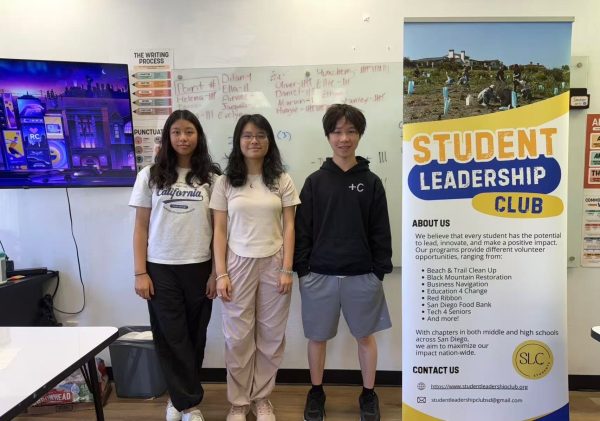
Aaron found that the best way to relax was to focus his mind on “anything that’s so immersive it makes me forget about [my worries];” that way, the nagging feeling to do something productive would go away. Kailin explained, “[Rest] can be as simple as getting a good night’s sleep or trying new foods and cuisines.”
“Some people need the summer to recharge. Others need the ability to experiment and explore. Both are valuable and important, and neither is better than the other!” Senior Associate Director of Admissions at Columbia University, Mr. Chris Quach said.
So when the familiar icebreaker — “What did you do this summer?”— returns on the first few days of school, the answers serve as a reminder that there’s no single way to make the months count. In the end, what matters most may be how ready you feel for what comes next.



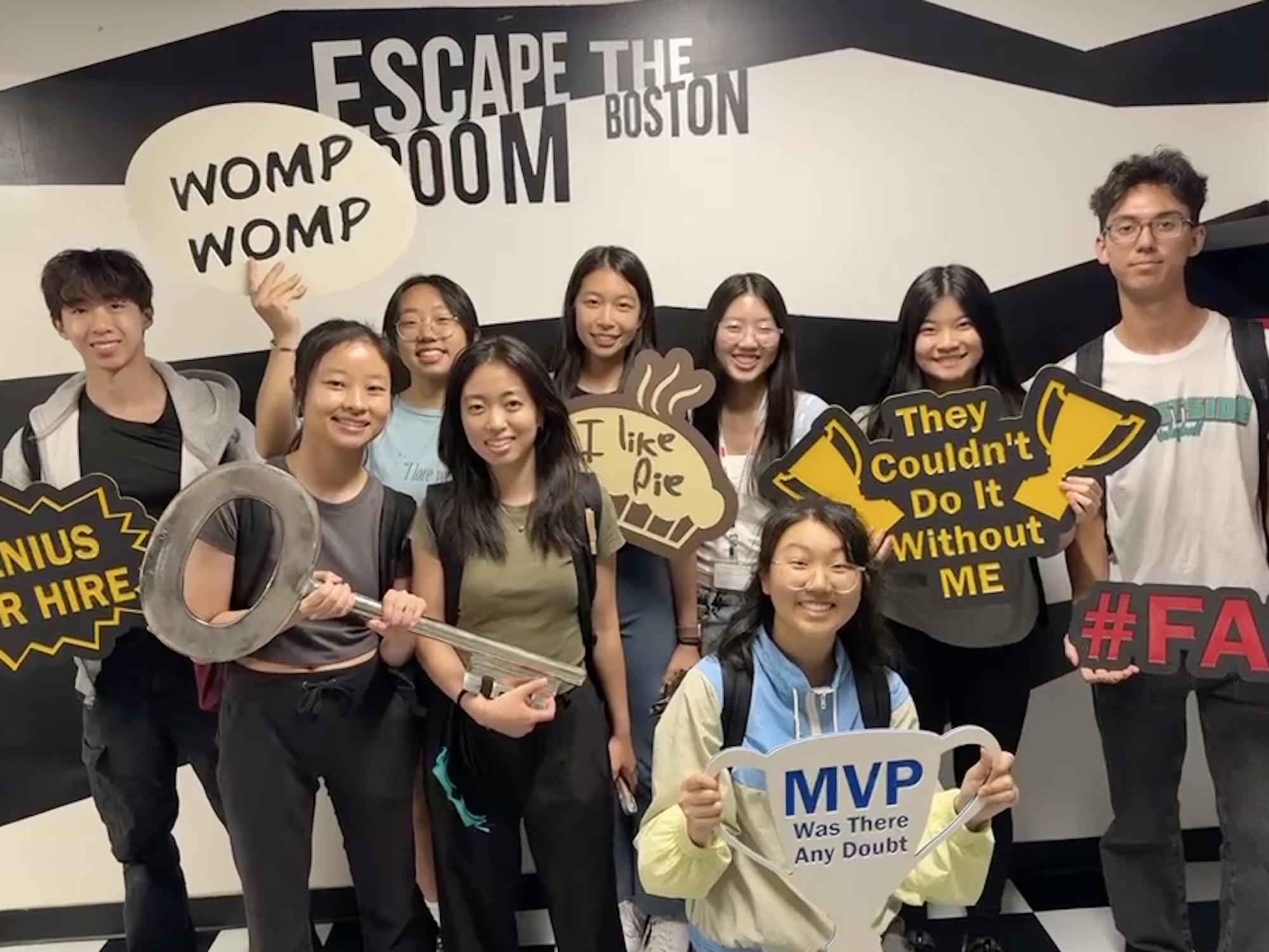
![(from left to right) Nathaniel Hendrickson (‘31), Benjamin Hill (‘31), and Cameron Sibley (‘31) are all smiles as they pet Brady, Ben’s spotted dog, who was blessed. “[Brady] was very excited and happy to be there,” he said.](https://thebishopstower.com/wp-content/uploads/2025/10/Screenshot-2025-10-13-at-8.45.50-AM-1200x899.png)
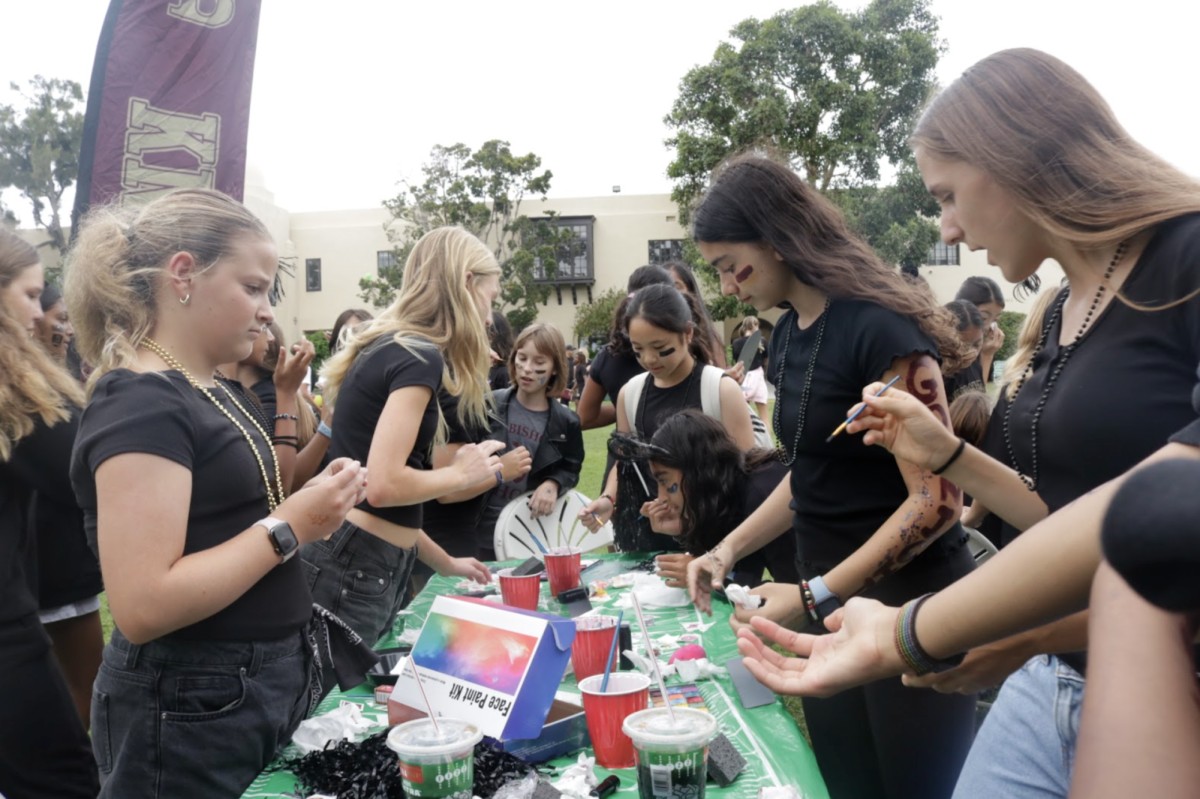
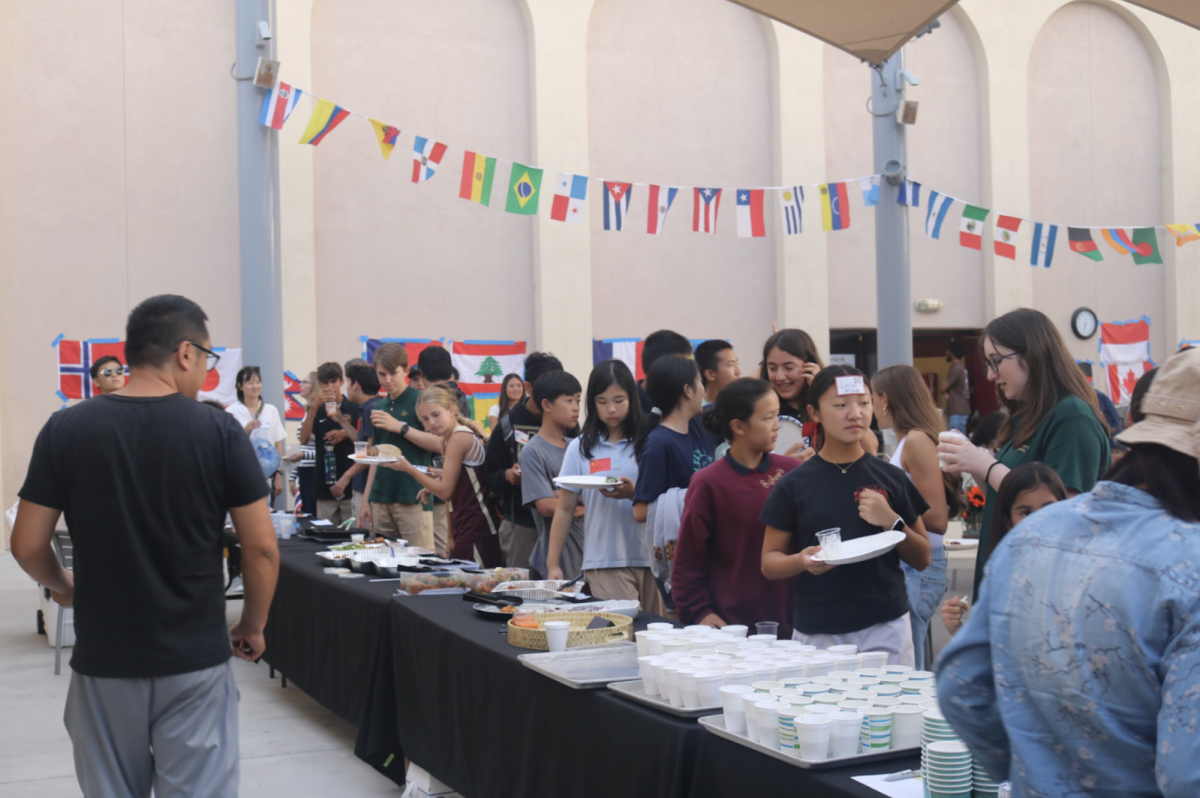
![Leia (‘30) and Sara Park (‘32) ended their combative performance with a yell known as a kiyap. Leia explained with a proud smile, “I realized this when I was little, but not many people see taekwondo every day. For me, it’s a daily occurrence, so it feels very normal…when I do [a performance] in public, everyone’s like ‘Wow, that’s really cool’. So it always reminds me how this isn’t a normal thing in other people’s lives and I think it’s really cool that I can share that.”](https://thebishopstower.com/wp-content/uploads/2025/10/Screenshot-2025-10-02-at-2.07.47-PM.png)


